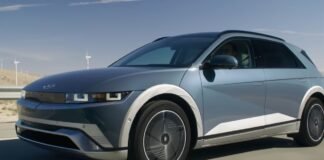In a surprising move that has sent shockwaves through the automotive industry, Honda and Nissan have announced their intent to merge, sparking debates over the benefits and implications of the union. While this might seem like a lifeline for the struggling Nissan, skeptics argue that Honda might be taking on more than it bargained for.
Nissan’s Struggles: A Steep Decline

Nissan has been facing an uphill battle for years. With dealerships closing, inventory piling up, and a product lineup that fails to resonate with consumers, the company has struggled to maintain relevance. The once-prized Titan has been discontinued, leaving the Frontier as its sole standout model. Even so, the Frontier alone cannot bear the weight of an ailing brand.
The situation is compounded by overpriced models like the Armada, with unsold 2023 units still sitting on lots priced near $80,000. Consumers seem reluctant to choose Nissan when competitors like Toyota offer better value, including hybrids like the Camry, which boasts superior fuel efficiency and resale value.
Honda’s Role: Savior or Sacrificial Lamb?

Honda, a brand with a stronger reputation, albeit not without its challenges, appears to be the dominant partner in this merger. Known for its reliable vehicles, Honda’s hybrid technology and engineering prowess could theoretically breathe new life into Nissan’s lineup. However, Honda is not without its flaws. Issues with its turbocharged engines and increasing competition in the market have tarnished its reputation to some extent.
Critics of the merger argue that Honda has little to gain and much to lose. Nissan’s history of reliability issues, particularly with its CVT transmissions, could undermine Honda’s hard-earned reputation. Furthermore, the financial burden of reviving Nissan’s struggling dealerships and product line could weigh heavily on Honda’s resources.
A Merger Born of Necessity?
Industry insiders speculate that this merger might not be entirely voluntary. Nissan’s financial woes and inability to compete in key segments, such as hybrids and EVs, have left it teetering on the brink of collapse. The Japanese government may have encouraged the merger to prevent a major domestic automaker from going under, which would have widespread economic repercussions.
What’s Next?
If the merger proceeds as planned, Honda is expected to take the lead, possibly consolidating dealerships and overhauling Nissan’s product strategy. The challenge will be convincing consumers to look past Nissan’s troubled history and trust in a revamped lineup infused with Honda’s DNA.
Still, questions linger: Will Honda’s resources and reputation be enough to salvage Nissan? Can Nissan shake off its “redheaded stepchild” image and rebuild consumer confidence? Or will the merger ultimately be a costly misstep for Honda?


